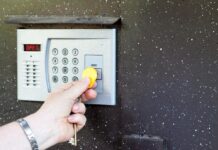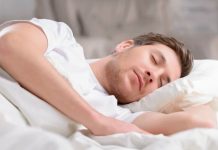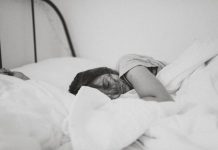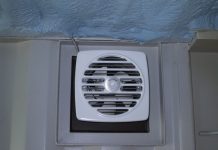It’s true that a lot of people suffer from anxiety. While some people seek medical help for the situation, an uncountable number goes untreated. In most cases, anxiety is something that you should get used to often becomes a part of your life.
As you can guess, there are multiple ways in which anxiety can affect one’s lifestyle for sure.

For instance, you may be overthinking all the time, thinking about your past, present and the future. One of the worst ways in which anxiety can take a toll on you is your sleeping routine. If you are wondering whether anxiety affects sleep, this is the place to read further.
In this article, we will discuss how anxiety affects your daily sleep schedule. While doing so, we will also go through some of the tips you can follow to keep things under control.
About Anxiety
Depending on the perspective we are following, anxiety can have different definitions. In general, however, it refers to a set of emotions caused by inner turmoil. Depending on your personality, past experiences and the presence of trauma etc., anxiety may manifest itself in different ways. Regardless of the reason that has been causing anxiety, it would have several impacts on your behavior and overall lifestyle.
We hope you understand the basics about anxiety now. Now, let’s explore its effects on sleep.
Anxiety and Sleep
We already mentioned that anxiety as a psychological condition would have some behavioral impact. Panic attacks, for instance, are a common issue when it comes to severe cases of anxiety. Those people would be required to get professional help, even for dealing with the day-to-day life. Even if this is not the case, anxiety as such would affect your sleep patterns.
First of all, please understand that it’s quite normal if you can’t sleep due to anxiety. We should also mention that the recent events, like the ongoing pandemic, would be adding pressure to your mind. All these factors will be valued when it comes to getting a good night’s sleep. The long story short: if you have anxiety, you’re likely to get a lower amount of sleep.
There is also something called sleep anxiety. Sleep anxiety is a type of performance anxiety in strict technical terms. Basically, it means that you may have different fears about sleeping. You could be afraid of nightmares or sleep apnea. General stress could also be causing the lack of regular sleep. In both of these cases, though, the amount of sleep would be compromised.
Note: You may or may not be diagnosed with anxiety disorder, but this doesn’t make much difference when it comes to changes in sleep cycle. Even if you have a normal amount of anxiety, this would have an impact on the amount of sleep you are getting every night.
The Vicious Cycle
By now, you have understood that anxiety can affect your sleep and overall body, right? However, there is another version to this story. And, it’s about how your lack of sleep can cause anxiety disorder.
Research has proven that lack of sufficient amount of sleep may result in acquiring anxiety disorder among other issues. Suppose you are someone who is suffering from a lot of stress and tension. This will put you in situation where you are anxious about anything and everything that could happen. Therefore, in the course of time, you are likely to develop anxiety if not anxiety disorder.
What you should understand is that sleep anxiety and sleep cycle are often in a vicious cycle. You will not be able to control one without keeping the other in control. If you have control, though, you are good to go.
Keeping Things under Control
Now that you know how anxiety affects your sleep and sleep cycle, we can look at the bright side. Here are a few methods and tips you can use for keeping anxiety at bay or at least control the effects.
- Meditation is something that is proven to help you lessen the impact of anxiety. Even if you do not have anxiety, meditating on a regular basis would offer the benefits of better sleep and an organized sleeping cycle. The best part here is that you don’t have to worry about medication or side effects as such.
- Exercise plays another important role in ensuring a good night’s sleep and keeping you away from the worse effects of anxiety. It comes as a triple bonus if you can include some social activity along with the exercise you are doing and some sleep gadgets. At the end of the day, we are trying to keep our minds afresh and be ready to control things.
In addition, you can also try methods like trying out sleep music, arranging your bedroom in a sleep-friendly manner etc.
The Bottom Line
We hope we were able to clear some of your doubts regarding anxiety and sleep. We also hope you are able to take these inputs and keep your anxiety-related issues at bay.










































